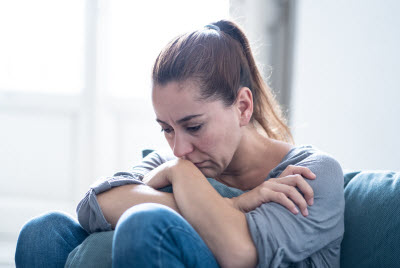Last updated on January 31, 2022
Georgia Law and the Dangers of Leaving Abusive Relationships
On behalf of Josie Siemon

In the spring of 2011, Georgia experienced a rash of women who left abusive relationships and died violently at the hands of their abusers. One victim was Carlotta Shields Appling, whose soon-to-be-ex-husband broke into her home on a Monday morning, shot her, then drove her car to another location and killed himself.
Domestic abuse experts report the most dangerous time for victims of domestic abuse is after they leave their dangerous relationships. According to the Georgia Commission on Family Violence’s annual Domestic Violence Fatality Review, three-fourths of domestic violence fatalities occur when the victim is taking steps to leave the abuser or has already left the relationship.
When to Seek a Protective Order
One tactic that may help safeguard a victim’s safety when leaving an abusive relationship is seeking a family violence protective order. Such an order states that an abuser may not contact the victim. It also enhances the penalties for any instances of violence that occur after the court issues the order.
Limitations of a Protective Order
The problem with protective orders is, ultimately, they are only helpful if the abusers are afraid of the consequences of violating the orders. If the abuser is not thinking about what will result from violating a protective order, as in the Appling case, the victim is still unsafe.
In other words, there are limits to the utility of protective orders. That is why domestic abuse advocates counsel victims preparing to leave abusive relationships to have a safety plan in place. A safety plan includes such things as planning a time for the victim to leave the abuser when the abuser is least likely to be able to hurt the victim.
For example, the person leaving an abusive relationship can vary his or her routine to make stalking more difficult. The person can also give a copy of any protective orders to employers and child care providers with instructions for them to call the police if they see the abuser on the premises. These are just some of the techniques designed to make someone leaving an abusive relationship less vulnerable.
How a Lawyer Can Help Victims of Domestic Abuse
Victims of domestic abuse can benefit from the assistance of a family law attorney. A lawyer can handle the paperwork and procedure for obtaining first a temporary protective order and then help to make the temporary order permanent. Additionally, a lawyer will know what special instructions to include in the protective order to ensure that the order is most beneficial for the victim.
An attorney can also help the victim institute divorce proceedings if the victim is married to the abuser and assist with child custody and support matters for any children that the two may have.
Weapons are often a factor in domestic abuse cases. Federal law prohibits persons with domestic violence convictions from owning guns. In Georgia, a successful petitioner for a protective order will obtain, as part of the standard order, an order to the abuser to surrender any guns in his or her possession.
Domestic abuse has a shattering impact on the lives of victims. If you are in an abusive relationship and need assistance getting out, do not hesitate to contact an attorney who can assist you in taking measures to protect yourself.

